US Condemns Arrest Of Senior Iranian Journalist
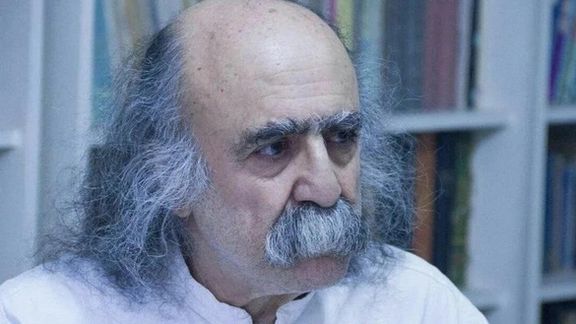
The office of US envoy for Iran has slammed the arrest of journalist Keyvan Samimi, saying that the regime has once again demonstrated how much it fears the people and the truth.

The office of US envoy for Iran has slammed the arrest of journalist Keyvan Samimi, saying that the regime has once again demonstrated how much it fears the people and the truth.
“The act of arresting Mr. Samimi…is a reminder of the degree to which the Iranian regime is incapable of adhering to the most basic international human rights standards and the lengths Iranian authorities will take to silence journalists,” the office of US Special Envoy at the State Department on Friday told the media.
Iran’s state TV announced Thursday that journalist and political activist Keyvan Samimi was once again arrested after his recent release.
The state TV introduced Samimi as an element linked to Mujahedin-e Khalq claiming that he was arrested on charge of "reconnecting with anti-revolutionary groups abroad".
It is not yet known which intelligence outfit arrested the political activist, but Mustafa Nili, a lawyer, wrote in a tweet that even Samimi's son was unaware of his father's arrest.
74-year-old Keyvan Samimi, who is known as the oldest imprisoned journalist in Iran, is the editor-in-chief of "Nameh" magazine. He was released from prison on January 26.
After his release, Samimi supported Green Movement leader Mir-Hossein Mousavi's statement for "holding a free referendum" in Iran and "drafting a new constitution".
Samimi also said in an interview with "Etemad" newspaper that "corruption" in the Islamic Republic began one day after the establishment of the Islamic Republic in 1979.
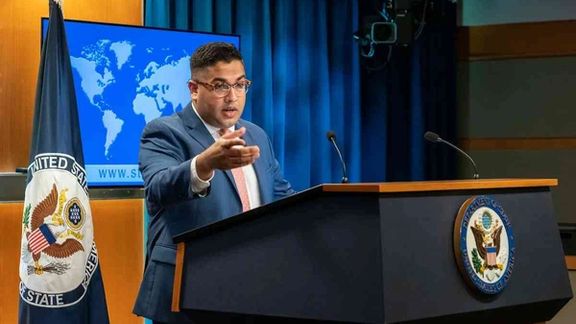
US State Department has once again called on Iran to immediately release three US citizens “wrongfully detained” without due process of law.
The American-Iranian dual nationals are Emad Sharghi, Morad Tahbaz, and Siamak Namazi who were arrested at different times and convicted on trumped-up charges, and in effect held hostage.
Vedant Patel, Principal Deputy Spokesperson of US State Department told a news briefing on Friday that April 23rd, is another sad day for US citizen Emad Sharghi and his family because it marks five years since he was first arrested by the Iranian regime.
“That is five years unjustly separated from his loved ones; five years missing the opportunity to celebrate birthdays and anniversaries. Today, Emad remains wrongfully detained in Evin Prison on bogus charges after being tried in absentia with no access to the evidence himself.”
He went on to say that there is no higher priority for Washington than ensuring the release of American nationals wrongfully detained overseas, and the State Department is working relentlessly to make sure that US nationals detained in Iran are released.
“The unjust imprisonment and exploitation of US nationals as political leverage is outrageous, inhumane, and contrary to international norms,” added Patel.
Iran routinely arrests people with Western passports and uses them as hostages and bargaining chips, but Washington avoids the term 'hostage taking', calling it “unlawful detention.”
Emad Shargi is an Iranian-American businessman who was convicted of espionage without a transparent trial and sentenced to 10 years in prison in 2020.
Morad Tahbaz, 66, is a British-US-Iranian triple national who was arrested in January 2018 and sentenced to 10 years in prison on “espionage” charges.
Siamak Namazi, is another dual-national businessman, who was arrested and imprisoned in October 2015 on charges of "collaborating with the US government".
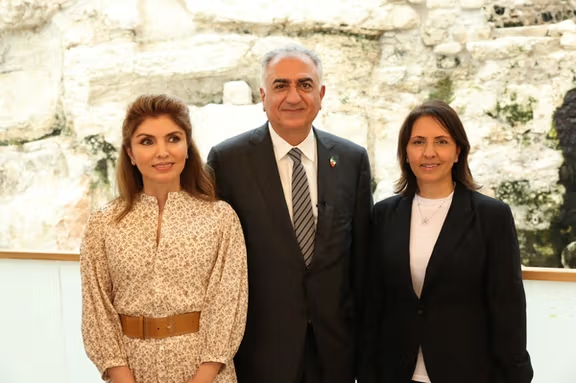
Iran’s exiled prince Reza Pahlavi left Israel on Friday afternoon after five days of meetings with senior officials and visits to cultural and scientific centers.
Israel’s Intelligence Minister Gila Gamliel, who was officially hosting Pahlavi and his wife, Jasmine, during their five-day stay, said Friday that the Iranians and Israelis can move on the path of progress together.
The new path between the nations has just begun, she said, sharing a video of some of the highlights of the historic visit.
"The visit of the Iranian crown prince that I led this week is only the beginning on the way to bringing hearts together and building bridges between the nations,” she said in a tweet in Hebrew.
In other tweets both in Hebrew and Persian, the Israeli official said that Pahlavi is a brave leader in the eyes of Israel and the free world, adding that “Together we stand against the axis of evil and this is the beginning of the road.” Axis of evil was a term coined by the US administration of President George Bush in 2002 to refer to the Islamic Republic, Saddam's Iraq and North Korea.
Gamliel underlined that while the Islamic Republic is disrupting the security of Israeli borders, Pahlavi and Israeli officials are building bridges between the tow nations. She made the comment after a meeting between Pahlavi and Minister of Strategic Affairs Ron Dermer and National Security Advisor Tzachi Hanegbi.
On the last day of his trip, Pahlavi delivered a speech at University of Haifa, where he laid out his vision for a future democratic Iran and amicable ties between the two countries, which he described as rooted in over 2,500 years of history and based on the shared democratic values, including respect for the rule of law, human rights, and religious freedom.
He renewed his call to the international community “to decide which side of history they want to stand.” “Do they stand with us (opposing the Islamic Republic) or do they remain silent?” he said. Quoting Martin Luther King, Pahlavi said, “In the end, we will remember not the words of our enemies, but the silence of our friends.”
Pahlavi also visited the Baha’i World Centre in Haifa, saying that he was touched by their “message of unity and togetherness.”
Established by Bahaullah in the 19th century, the Baha’i faith initially spread in Iran and parts of the former Ottoman Empire. For nearly three centuries the Baha’is have been persecuted in Iran to varying degrees and subjected to mob attacks often instigated by the Shia clergy.
Supreme Leader Ali Khamenei has on several occasions called the Baha'i Faith a cult and in a religious fatwa in 2018 forbade contact, including business dealings, with followers of the faith. Baha'is, who number around 300,000 in Iran, say their rights are systematically violated and they are often harassed, forced to leave their homes and businesses, and are deprived of government jobs and university education.
During a press conference in Tel Aviv on Wednesday, Pahlavi said that Iranians are the extreme opposite of the country’s current rulers, and that the regime does not represent the Iranian nation. “They have no antagonism to any nation or any faith. I know that Iranians and Israelis see how important it would be for our future to be strategic partners, to work together, to address many issues. I come here to convey this message to Israeli citizens,” he said.
Referring to the 2020 US-brokered Abraham Accords aimed at normalizing relations between Israel, the United Arab Emirates and Bahrain, Pahlavi also expressed hope for a “Cyrus Accord” for peace between Tehran and Jerusalem.
While Pahlavi was promoting peace with the Israelis, Islamic Republic’s President Ebrahim Raisi threatened to destroy the Israeli cities of Tel Aviv and Haifa in an inflammatory speech in Tehran on Tuesday.

During his stay, Pahlavi visited the Wailing Wall and attended the ceremony to mark Israel's Holocaust Remembrance Day at the Yad Vashem memorial in Jerusalem. He also met with Prime Minister Benjamin Netanyahu twice and President Isaac Herzog. One of the main goals of Pahlavi’s visit was exploring ways to solve the water crisis in Iran with the help of Israeli experts. In line with this goal, he also visited Sorek Desalination Plant.
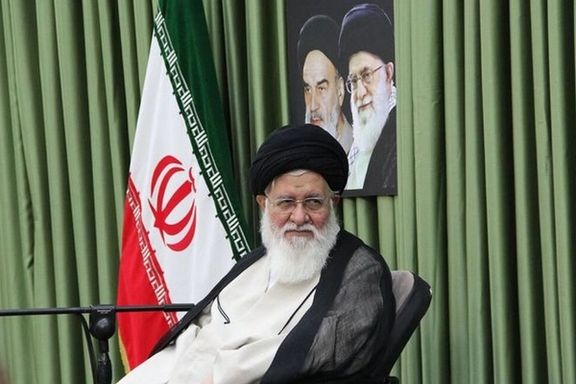
Amid high inflation and the declining value of Iran’s currency, an influential ayatollah says buying gold and foreign currencies as investment is a sin.
Ayatollah Ahmad Alamolhoda, father-in-law of President Ebrahim Raisi and Supreme Leader Ali Khamenei’s representative in the religious city of Mashhad, is known for his fundamentalist views, who is famous for banning cultural activities in the city.
Alamolhoda said in his Friday sermon April 21 that if people convert their capital to foreign currencies and gold it is sin “equal to hoarding and profiteering,” which is considered an offence according to Sharia.
Iran’s currency, the rial, has halved in value since mid-2022, with inflation above 50 percent and the middle class fast becoming impoverished. The US dollar has risen from 260,000 rials to around 520,000 since August.
People have been trying to invest in foreign currencies, gold and those with more resources in real estate to preserve their savings.
Alamolhoda also referred to women refusing to wear headscarves, which has angered religious hardliners. He said the Islamic Republic faces two big challenges: Economic crisis and a cultural crisis. He insisted however that these two problems are not related to one another.
Ordinary people who have been protesting against the regime, see the economic crisis as the result of government’s foreign policy and mismanagement and the enforcement of hijab as its undue interference in their private lives.
The regime that has refused to compromise over its nuclear program with the West, is determined to use repression to pacify the population.
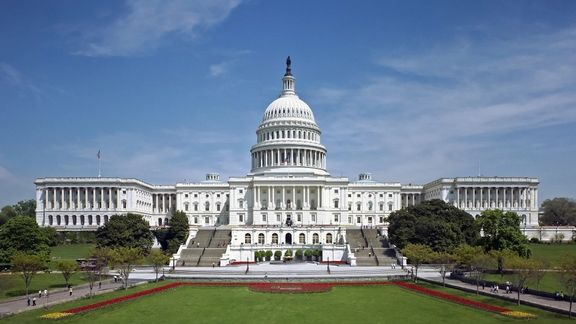
US lawmakers have moved to hold the Islamic Republic accountable over its crackdown on dissent and possible role in chemical attacks on girls’ schools across Iran.
A group of nearly 20 Republican and Democratic members of the US House has formed the Iranian Women Congressional Caucus, condemning the Iranian government over the recent poisoning of schoolgirls.
Amplifying the growing criticism in Washington against the Islamic Republic and its disregard for human rights, Rep. Sheila Jackson Lee (D-TX) and Rep. Nancy Mace (R-SC) -- who cochair the caucus – said Thursday that they are working on a resolution that condemns the Iranian government over the recent poisoning of schoolgirls.
The resolution, already backed by over a dozen lawmakers from both parties, calls on the State Department and the UN to investigate the attacks.
“So many Iranian women are showing their bravery and resiliency in the face of challenges in their fight for equality and human rights. We will be on the side of freedom and oppose the oppression of women, in the United States, Iran, and around the globe,” said founding co-chair Mace.
The caucus is the latest move by US lawmakers to denounce the treatment of women in Iran, especially since the death of 22-year-old Mahsa Amini in custody of hijab police in September 2022, which led to the boldest revolt against the clerical regime since its establishment in 1979.
More than 500 people have been killed in the nationwide rallies, nearly 20,000 have been detained, and several were executed on trumped up charges.
Moreover, a series of suspected chemical attacks at girls’ schools began in November and sending hundreds of schoolgirls to hospital, fueling claims about the violation of women’s and girls’ rights and prompting demonstrations in protest to the regime’s inaction and possible involvement.
In January, the House overwhelmingly approved a resolution expressing solidarity with the protesters. The 420-1 vote voiced support for the people in Iran who have been risking imprisonment and even death to protest against the country’s theocracy, which has engaged in a brutal crackdown of its citizenry.
Advocates and human rights groups have called on the US and other Western democracies to cut ties with the Islamic Republic and impose harsher sanctions on the top officials, including Supreme Leader Ali Khamenei and President Ebrahim Raisi.
The House Foreign Affairs Committee has finally scheduled the Mahsa Amini Human rights and Security Accountability Act -- or the MAHSA Act -- for a markup on April 26.
Late in January, House Armed Services Committee Member Rep. Jim Banks (R-IN) introduced the bipartisan MAHSA Act to sanction Iran’s ruler and his inner circle, saying “Regular Iranians like Mahsa Amini are being murdered and persecuted by the Iranian regime, but the Biden administration is still trying to cozy up to Iran’s senior officials so he can cut an even more disastrous nuclear deal.”
The markup session will be held by efforts of members of the Iranian-American community as well as more than 80 Democrat and Republican co-sponsors of the Act and Representative Michael McCaul (R-TX), the chairman of the committee.
The National Union for Democracy in Iran (NUFDI) announced in January that “NUFDI as a grassroots Iranian-American organization, is proud to support the re-introduction of the MAHSA Act in the 118th Congress,” urging “all members of Congress, regardless of their political affiliation, to support the MAHSA Act.”
Another advocacy group United Against a Nuclear Iran said, "The MAHSA Act provides a critical pillar in holding Iran's regime accountable for its crimes against the Iranian people and the international community. The supreme leader has evaded US counterterrorism and human rights abuse sanctions for years.”
However, some lobbyists and a few lawmakers try to dilute the act, describing it as “Islamophobic” or “not leading to any increased sanctions.”
NIAC, advocating non-confrontational policies toward the Islamic Republic, said in a statement that “the bill would make it more difficult for a President to lift sanctions on these officials as part of any diplomatic agreement... This bill does not include a sunset and would target the offices themselves, rather than individuals. As a result, it would remain in effect indefinitely and be applied to any future Supreme Leader or President of Iran until its repeal."
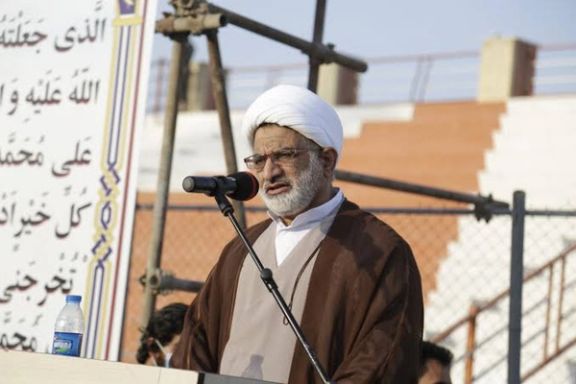
An Iranian official has said missiles will send the regime’s message to Israel, after exiled Prince Reza Pahlvi spoke of peace on his visit to the Jewish state.
Mahmoud Mahmoudi, a representative of the Supreme Leader and Friday prayer imam of the city of Kangan in Bushehr province, claimed that “the resistance groups opened the gates of hell to the Zionists with intense attacks and now they are surrounded by the resistance forces.”
Iran’s Islamic regime calls its proxy militias in the region “the resistance front”.
The contents of Friday Prayer sermons delivered by Khamenei's local representatives in various cities are dictated by two state bodies close to Khamenei's office, officially known as "The Policy-making Council for Friday Prayer Imams" and the "Friday Prayer Headquarters," both dominated by hardliner clerics.
Mahmoudi’s remarks came as leading opposition figure Pahlavi has just ended a historic tour of Israel, meeting with Israeli premier and president as well as several other officials with a message of peace between Iran and Israel after the collapse of the Islamic Republic.
During a press conference in Tel Aviv, Pahlavi talked about the prospects of peace and calm in the region when the Islamic Republic falls. “Imagine a different Iran, not ruled by a religious dictatorship, but [what] a secular democratic Iran could mean for our region, for stability and how it would impact the world positively,” he said.